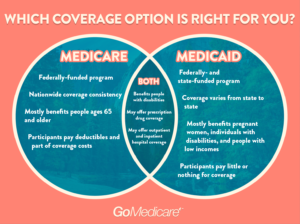
Washington Post – By Aaron Blake March 10 at 10:29 AM
Two big stories on the Republicans’ Obamacare replacement bill broke late Thursday. And both point to major broken promises for President Trump.
The Washington Post’s Katie Zezima and Christopher Ingraham report that the bill would cut a mental-health and addiction treatment mandate covering 1.3 million Americans — counter to a Trump promise to expand treatment:
The Republican proposal to replace the Affordable Care Act would strip away what advocates say is essential coverage for drug addiction treatment as the number of people dying from opiate overdoses is skyrocketing nationwide.
Beginning in 2020, the plan would eliminate an Affordable Care Act requirement that Medicaid cover basic mental-health and addiction services in states that expanded it, allowing them to decide whether to include those benefits in Medicaid plans.
CNN, meanwhile, is reporting that the Trump White House is negotiating to possibly roll back the Medicaid expansion earlier to appeal to conservatives — counter to Trump’s promise to leave Medicaid alone:
White House officials are beginning to urge House GOP leadership to include an earlier sunset of the Medicaid expansion funds authorized under Obamacare than the 2020 date set by the current bill. The change comes just days after the bill was unveiled and follows a blitz of activism aimed squarely at the White House and President Donald Trump, who has met with conservative leaders in recent days.
Here’s what Trump said last year: “I’m not going to cut Social Security like every other Republican, and I’m not going to cut Medicare or Medicaid.”
After House Republicans released a proposal to transform the Affordable Care Act, members of their own party offered a mixture of support and suggestions for changes to the plan. (Sarah Parnass/The Washington Post)
On opioids, Trump said in his speech to Congress last week, “Our terrible drug epidemic will slow down and ultimately stop,” adding that he would “expand treatment for those who have become so badly addicted.” During a speech in October, Trump said he would “dramatically expand access to treatment slots and end Medicaid policies that obstruct inpatient treatment.”
It’s possible Trump could focus his fight against opioids in other arenas. Rather than emphasizing treatment, his rhetoric has often keyed on building a border wall to stem the flow of illegal drugs. Republicans explaining the lapsing coverage requirement, meanwhile, have argued that states could continue to provide such coverage, even though it isn’t mandated anymore.
But as Zezima and Ingraham report, addiction specialists say it’s a very poorly timed rollback.
“Taken as a whole, it is a major retreat from the effort to save lives in the opiate epidemic,” Joshua Sharfstein, the associate dean at Johns Hopkins Bloomberg School of Public Health, told them.
And cutting the requirement would at the very least seem to run counter to Trump’s promise to expand access to coverage. This could ostensibly be counteracted in other legislation, but we haven’t seen a specific proposal yet.
The Medicaid rollback is perhaps a more clear-cut case of a promise going by the wayside. Trump’s promises on entitlements were often unmistakable, saying they wouldn’t be touched. That played into Trump’s populist rhetoric — and was undoubtedly something that entitlement-cut-averse voters liked. But now that the work of actually changing health care is afoot, Trump is working with a party and a House speaker in Paul Ryan with dreams of real entitlement changes (and cuts) to balance the budget and keep the programs sustainable. The GOP as a whole was also skeptical of the Medicaid expansion in the first place, and many GOP governors turned it down.
And these aren’t the only Trump promises that risk being broken by the health-care bill. There is, of course, the massive overall promise that Trump made to attain universal health-care coverage — “insurance for everybody.” The Congressional Budget Office scores aren’t in, but the law’s replacement of Obamacare’s individual coverage mandate seems very likely to reduce the number of Americans who are covered. That’s because it only penalizes people for attaining coverage after not having it for a long period of time; it doesn’t tax them for avoiding coverage altogether if they never actually sign up.
And House Speaker Paul Ryan (R-Wis.) acknowledged that goal would not be met in an interview with conservative radio host Hugh Hewitt Friday. “We always know you’re never going to win a coverage beauty contest when it’s free market versus government mandates,” Ryan said.
Trump made so many huge promises on the campaign trail — at least 282 of them, according to The Post’s Jenna Johnson — that keeping every last one of them was always going to be impossible. And every president winds up breaking some promises, as President Barack Obama did.
But Trump promised more than his predecessors — including on some things that were obviously going to be very difficult to deliver on. And now the hard work of actually legislating is proving particularly harsh on some of Trump’s biggest campaign-trail promises.
And we’re only on the first major piece of legislation.
Questions about Obamacare and reimbursement? Physician Credentialing and Revalidation ? or other changes in Medicare, Commercial Insurance, and Medicaid billing, credentialing and payments? Call the Firm Services at 512-243-6844

